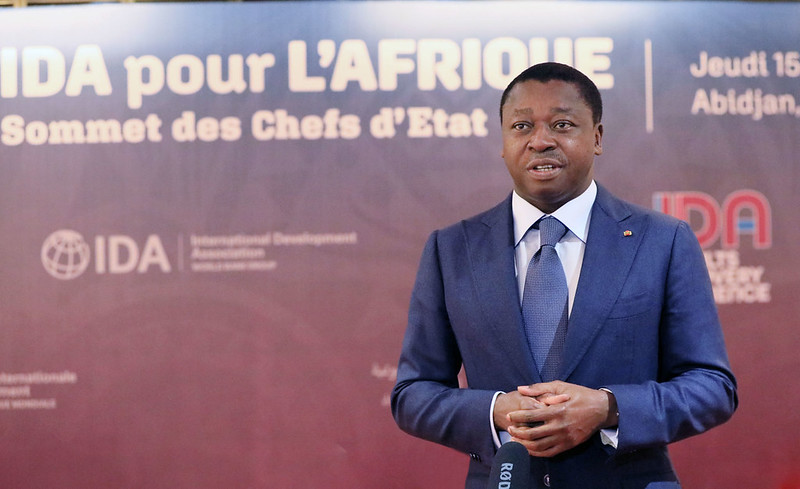By Jeannine Ella Abatan, 5 July 2024

President Faure Gnassingbé of Togo (photo credit: Présidence Togolaise via flickr)
Togo’s recently revised constitution, adopted by parliament on 19 April, changes the system of government from presidential to parliamentary. Leading ruling party figures say it strengthens democracy and institutional stability, and fits the country’s current sociopolitical realities.
However, some opposition and civil society members call the reforms a constitutional coup d’état aimed at circumventing presidential term limits.
The new constitution reduces the powers of the president, who will now be elected by parliament for a four-year term, renewable once. The constitution also creates the position of president of the Council of Ministers. That post will be held by current president, Faure Gnassingbé, leader of the majority Union pour la République (UNIR) party in the national assembly, giving him most of the executive powers for an unlimited six-year term – as long as his party wins legislative elections.
Opponents also criticise the timing of the revision, its legality, and the lack of transparency and consultation before its adoption. Of particular significance is that the mandate of the parliament that adopted the revision expired in December 2023, the month originally set for legislative elections. Attempts to protest against the reforms were banned. Opposition and civil society appeals were also unsuccessful, including a 22 April referral to the constitutional court to rule on the reforms’ legality.
Read the full article here:
Daily Maverick
